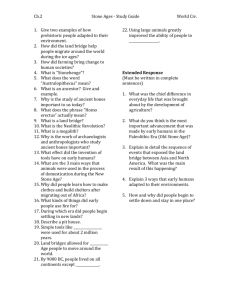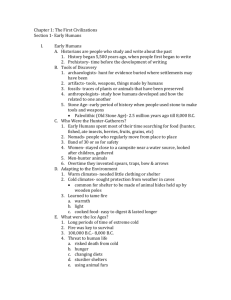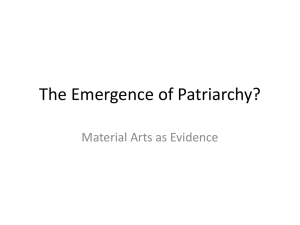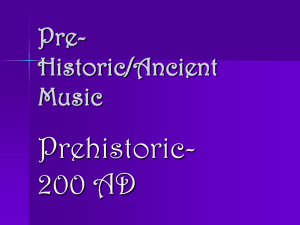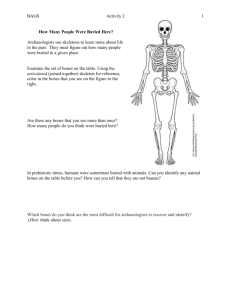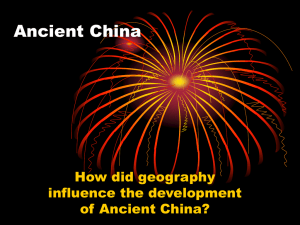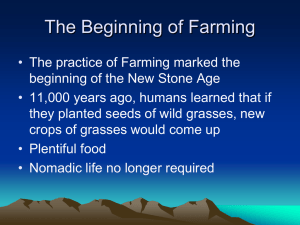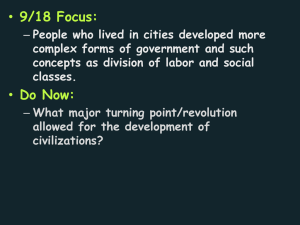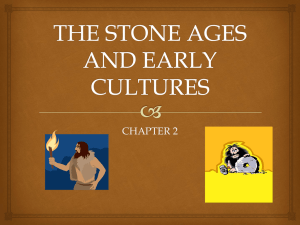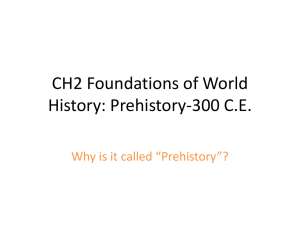Stone Ages & Early Cultures Test - Middle School
advertisement
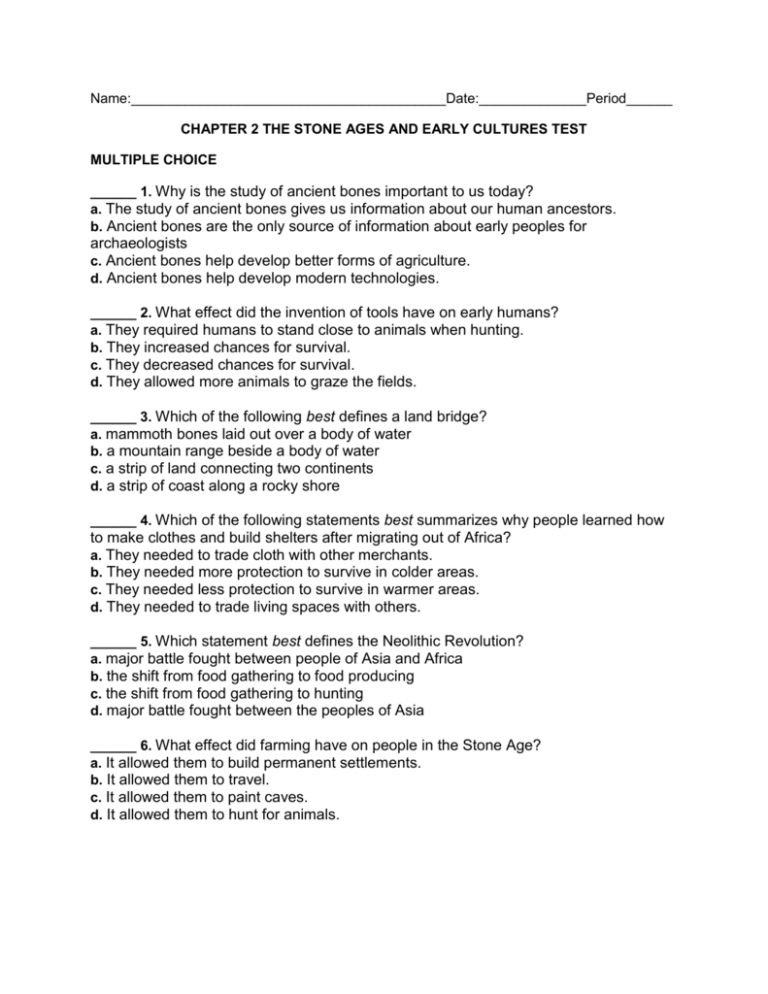
Name:_________________________________________Date:______________Period______ CHAPTER 2 THE STONE AGES AND EARLY CULTURES TEST MULTIPLE CHOICE ______ 1. Why is the study of ancient bones important to us today? a. The study of ancient bones gives us information about our human ancestors. b. Ancient bones are the only source of information about early peoples for archaeologists c. Ancient bones help develop better forms of agriculture. d. Ancient bones help develop modern technologies. ______ 2. What effect did the invention of tools have on early humans? a. They required humans to stand close to animals when hunting. b. They increased chances for survival. c. They decreased chances for survival. d. They allowed more animals to graze the fields. ______ 3. Which of the following best defines a land bridge? a. mammoth bones laid out over a body of water b. a mountain range beside a body of water c. a strip of land connecting two continents d. a strip of coast along a rocky shore ______ 4. Which of the following statements best summarizes why people learned how to make clothes and build shelters after migrating out of Africa? a. They needed to trade cloth with other merchants. b. They needed more protection to survive in colder areas. c. They needed less protection to survive in warmer areas. d. They needed to trade living spaces with others. ______ 5. Which statement best defines the Neolithic Revolution? a. major battle fought between people of Asia and Africa b. the shift from food gathering to food producing c. the shift from food gathering to hunting d. major battle fought between the peoples of Asia ______ 6. What effect did farming have on people in the Stone Age? a. It allowed them to build permanent settlements. b. It allowed them to travel. c. It allowed them to paint caves. d. It allowed them to hunt for animals. ______ 7. Which of the following best defines a megalith? a. huge stones used as monuments b. a temple made of wood c. a large mammal that lives in the Asian tundra d. a ruler or king of an ancient kingdom ______ 8. People in the New Stone Age had a different relationship to plants and animals due primarily to a. climatic changes and human innovations. b. migration patterns. c. religious beliefs and fire control. d. barbarian invasions. ______ 9. Which of the following statements best summarizes the relationship between farming and the growth of towns? a. Farming held back developments in the arts. b. The development of farming helped establish permanent settlements. c. The development of farming led to more hunter-gatherer groups. d. Farming competed with hunting and gathering practices. PRACTICING SOCIAL STUDIES SKILLS: Study the map below and answer the question that follows. ______ 10. Which area did humans reach approximately 40,000 years ago? a. North America b. Africa c. Australia d. South America COMPLETION: Write the correct answer on the line. 11. To study prehistory, historians rely on the work of anthropologists and____________ . (archaeologists/Australopithecus) 12. Simple tools like_______________ were used for about 2 million years. (choppers/processors) 13. Land bridges allowed for __________________Age people to move around the world. (Stone/Medieval) 14. By 9000 BC, people lived on all continents except_______________________ . (Africa/Antarctica) 15. Using large animals greatly improved the ability of people to___________________. (farm/gather) MATCHING: Match each item with the correct statement. ______ 16. Any handheld object that has a. ancestor been changed to help a person complete a b. mammoth task c. migrate ______ 17. Farming ______ 18. A relative who lived in the past ______ 19. To divide among a group of people ______ 20. To move ______ 21. Process of changing plants or d. agriculture e. Stonehenge f. domestication g. ice ages h. tool animals to make them more useful to i. distribute humans j. hunter-gatherers ______ 22. Type of bone used to build early k. prehistory houses l. megaliths ______ 23. A time of long periods of m. land bridge freezing weather ______ 24. Famous megalith ______ 25. People who hunt animals and collect wild plants to survive
